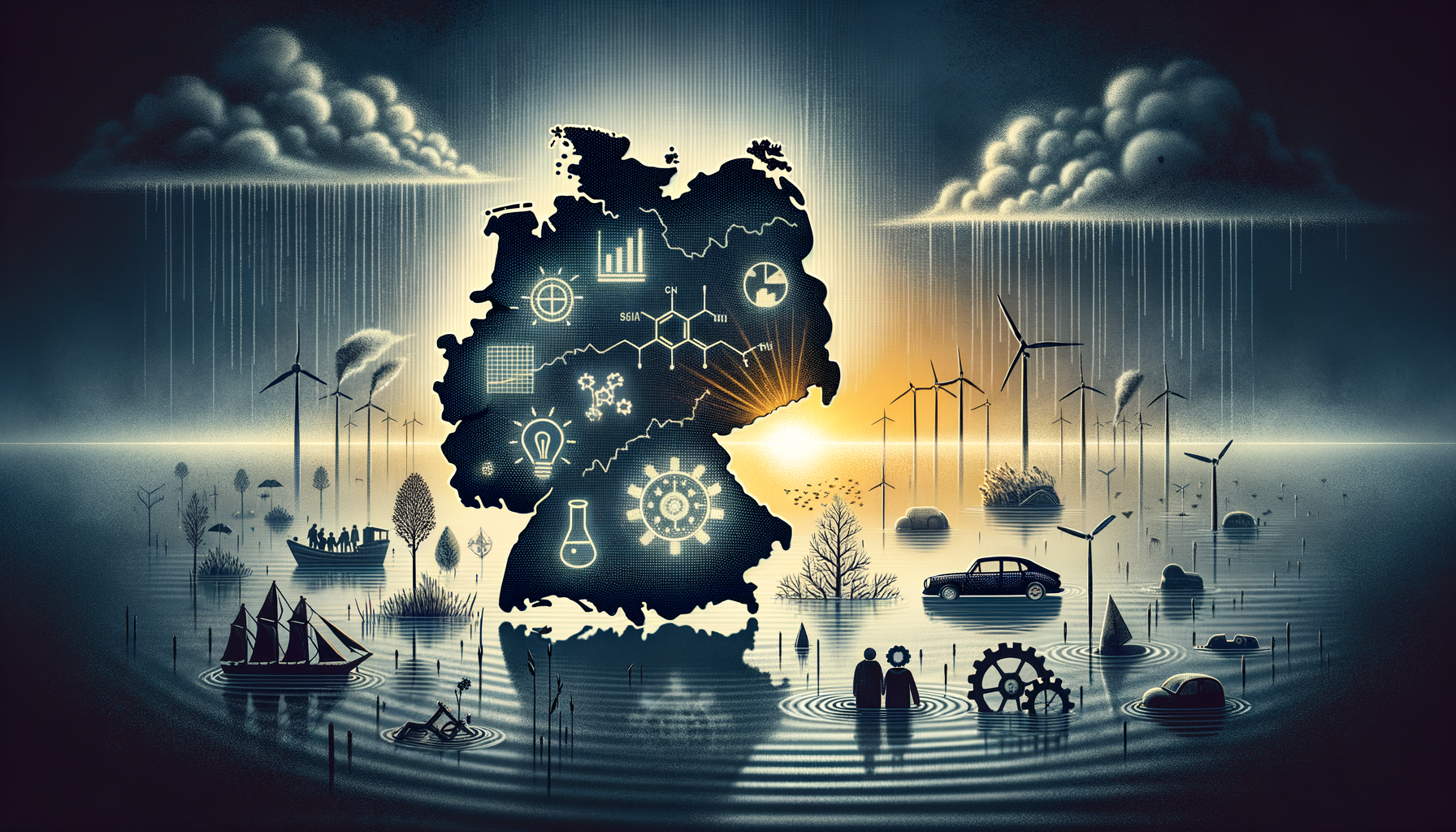“Unpacking the 0.3% Contraction of Germany’s Economy in 2023: A Deep Dive Analysis”
The European powerhouse, Germany, experienced an unexpected contraction in its economy last year, with a decrease of 0.3%. This marks a surprising downturn for a nation often seen as an inexorable engine of growth, thereby casting a shadow over a period that was otherwise seen as a year of global economic recovery. Having already been weakened by a series of challenges, from labor force issues to the ongoing effects of climate change, and from supply chain interruptions to the tech industry transformation, this financial shrinkage could be another hurdle for Germany to overcome.
In the fourth quarter of 2023 itself, Germany’s economy saw a decline, which was not foreseen by economic pundits. This unexpected contraction has further ignited the debate over the health and durability of the German financial system. While some perceive it as a momentary glitch, others raise their concerns about a potential economic slowdown that could impact the European Union as a whole, given Germany’s influence on the region’s monetary policy.
Traditionally, Germany’s prosperous economy has been driven by its robust industrial sectors such as automotive manufacturing, chemical production, and mechanical engineering. However, these industries have recently faced numerous challenges, including the global trend toward digitization and the increasing demand for sustainable and renewable energy sources. While these are worldwide trends essentially affecting all industrial countries, the impact has been particularly significant in Germany due to its export-oriented economic structure.
The automobile industry of Germany, revered as the backbone of its economy, is going through a transformational phase. The move towards more sustainable modes of transport spearheaded by the world’s leading economies has compelled German car manufacturers to shift from combustion engines to electric vehicles. This transition, while necessary for combating climate change and adhering to international environmental standards, has been costly and has upset the rhythm of this key sector.
Besides the auto sector, Germany’s economic terrain is suffering from other issues as well. Labor shortages brought on by an ageing population pose a significant threat. Germany has one of the highest median ages worldwide, a factor that’s set to cause a demographic crisis impacting the country’s labor force.
In addition to this, the continuous effects of climate change, which have led to unprecedented flooding in recent years, pose another substantial hurdle. These floods have led to interruptions in the production process for several industries, especially impacting the small and medium enterprises (SME) sector, another key driver of the German economy.
Underpinning these issues is a global supply chain crisis provoked, partly, by the lingering effects of the COVID-19 pandemic and international trade disputes. Shipments have been delayed, and supply routes have been disrupted, leading to a significant increase in the cost of raw materials.
Moreover, the digital revolution in the tech industry is posing a significant challenge for Germany. As more businesses pivot toward digitization, Germany’s industrial sectors are struggling to keep up. The tech industry, being more flexible and less resource-intensive than the traditional industrial sector, is reaping the benefits of this global shift. But for Germany, the digital revolution poses a conundrum of how to balance the growth of its flourishing tech sector while preserving its traditional industrial base.
However, against this rather bleak backdrop, the German economy remains resilient. Even with a contraction of 0.3%, Germany still has the largest economy in Europe and the fourth-largest globally. Its strong base in varied sectors and commitment to innovation and skill development provide it with a unique resilience against these economic trends.
Moreover, it is essential to remember that economic contraction does not necessarily imply a recession. Economies witness ups and downs, and if the appropriate steps are taken, a contraction can be converted into an opportunity for growth.
The German government has always been well renowned for its fiscal policies and crisis management. In light of these recent challenges, significant investment in digital education, vocational training as well as research and development may play a critical role, especially considering the digital wave taking over the world.
Sustainable development is another economic focus that could help Germany turn the tide. The environmental challenges we face today call for economies across the globe to lean towards more sustainable industries. As Germany is already a front-runner in renewable energy, leveraging this sector could build a more innovative and resilient economy.
Lastly, the value of social partnerships in Germany’s economic model cannot be overstated. The role of unions, employers and the government working hand in hand to mitigate the impact of economic struggles is integral to the country’s functioning. Preserving these partnerships and fostering cooperation will be key in combating these emerging obstacles.
In conclusion, while Germany’s economic contraction of 0.3% unquestionably represents a notable setback, it also provides an opportunity to reassess and adjust economic policies according to new global trends. Through focused endeavor and strategic reorientation towards digital and green economies, Germany possesses all the tools required to bounce back from this downturn stronger than before. As we move forward, every eye will be on how Germany navigates these challenges and re-emerges to retain its position as a global economic leader. Despite the unexpected contraction, Germany’s potential for growth remains undiminished.

